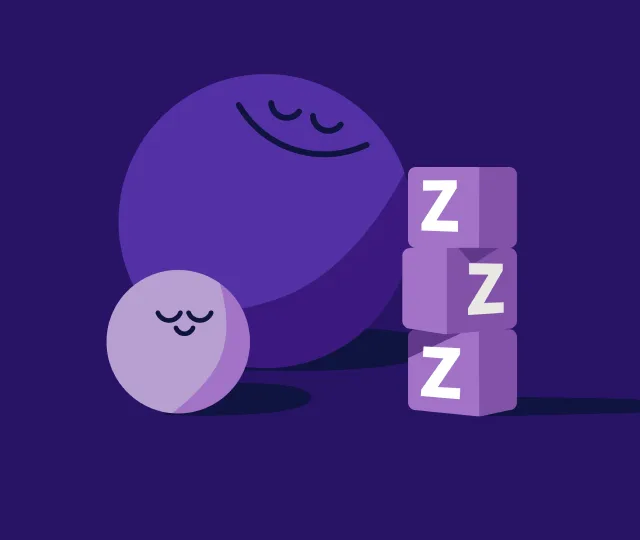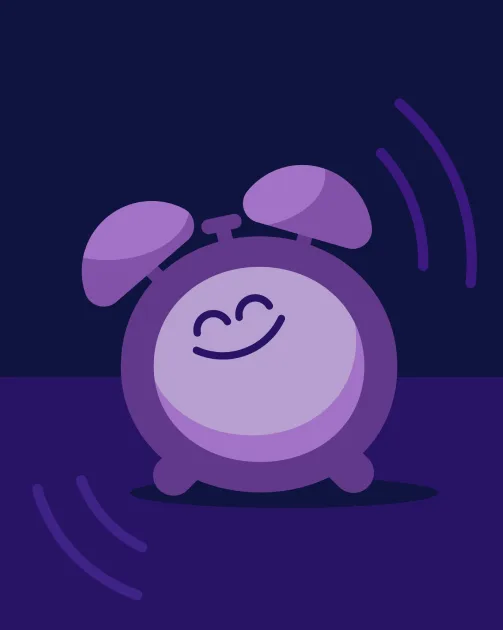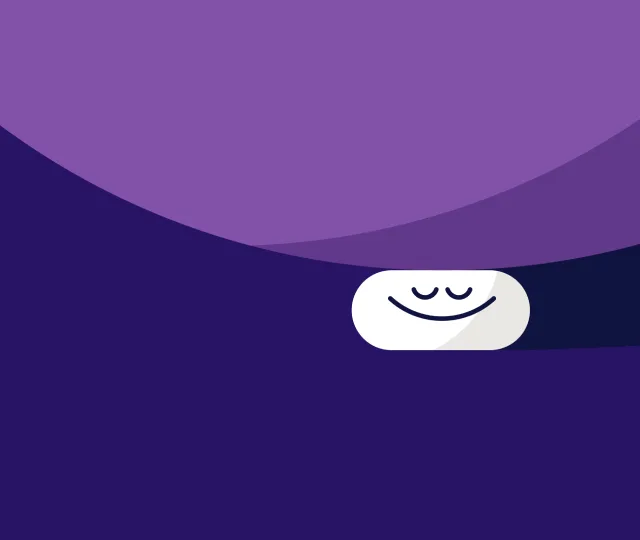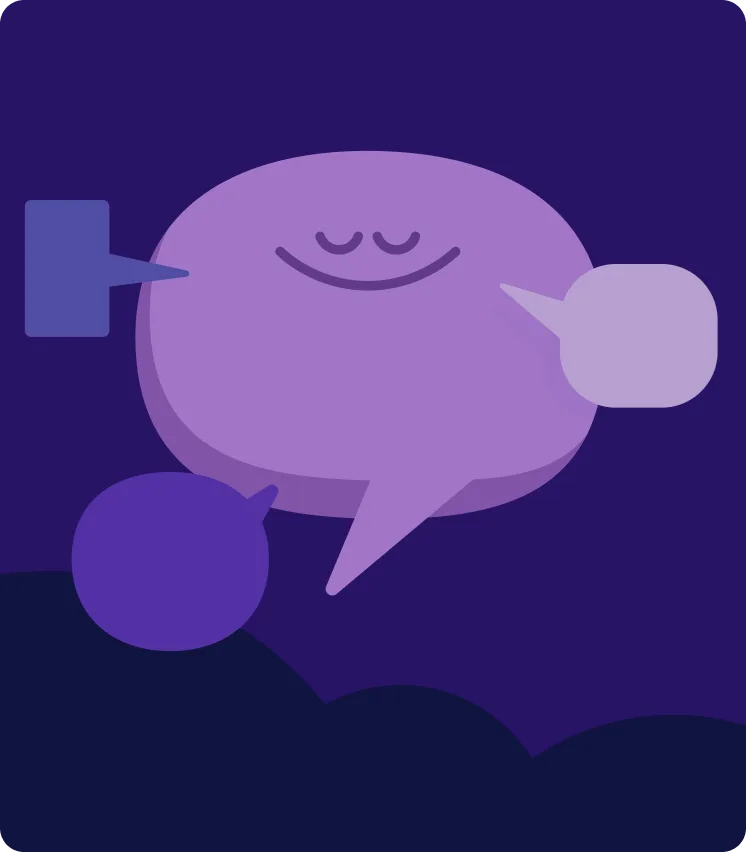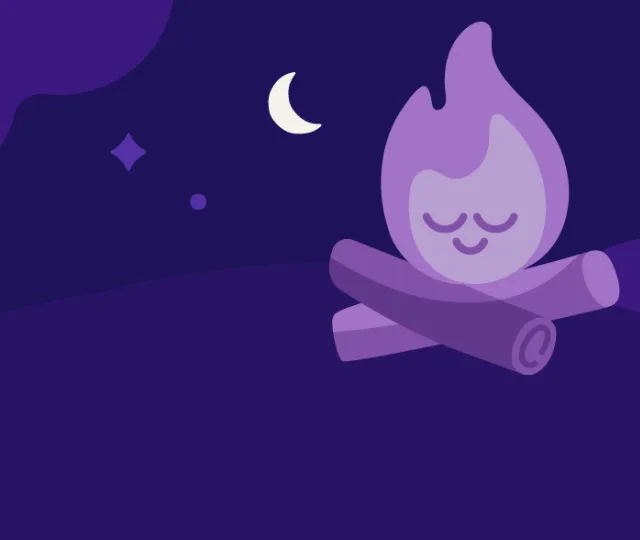Sleep 101
By Your Headspace Mindfulness & Meditation Experts
Sleep — it’s one of the most important things we can do for our bodies and minds. Yet, for many of us, our relationship with sleep can be complicated.
For something that should be relaxing and rejuvenating, sleep can often be a source of frustration and stress. We worry about its quantity, quality, and consistency; some of us might even worry whether we’ll ever sleep soundly again.
But for those of us grappling in the twilight zone between restful Zzzs and restlessness, we can find the peace of mind that facilitates sleep by adopting an informed, calm approach to bedtime.
Here, we’ll look at the most important things we need to know about sleep: why we need it, what it does for us, and the tools and techniques that can help us embrace and enjoy our rest.
In this article
- Why we sleep
- How much sleep do we need
- Different stages of sleep
- Sleep and stress
- Sleep hygiene
- Sleep schedule and routine
- The best temperature for sleeping
- Natural and artificial light
- Phone use and sleep
- Best foods and drinks before bed
- Exercise and sleep
- Better ways to use the bedroom
- Napping
- Meditation for sleep
- Best sounds to fall asleep to
- Sleepcasts and sleep music
- Natural sleep aids
- Helping kids sleep better
- Dreaming and nightmares
- How to fall back to sleep
- The effects of sleep deprivation
- Embracing the morning
- Morning meditation
- Headspace for sleep
Why we sleep
When we sleep, we are resting both body and mind. It serves a similarly important role in our health and well-being as eating, drinking, and breathing. Without it, we couldn’t function. And, like food, sleep benefits almost every tissue in our body.
While asleep, our body gets the opportunity to repair and rejuvenate itself. Just a few of the many benefits of sound, solid sleep include muscle growth, tissue repair, boosting our immune system and improving the health of our heart. And not getting enough sleep can, in some cases, increase the risk of obesity and diabetes. We are more likely to make healthier choices when we’re well rested.
We feel the benefits mentally too, as sleep feeds the mind by improving brain function. We can all recognize the fogginess that impairs our cognitive abilities when we are tired, clouding our ability to think clearly, pay attention, and make the best decisions. Whereas better sleep can make us less irritable, and improve our mental clarity, focus, and memory.
Keep reading: for tips on how to get a better night’s sleep, check out Sleep hacks.
How much sleep do we need?
The National Sleep Foundation recommends seven to nine hours of sleep for healthy adults. Children and teens need more to enable growth and development.
But while these general recommendations can offer a useful guideline, we are all unique and require a different amount of rest to maintain a healthy body and mind.
Headspace co-founder and former Buddhist monk Andy Puddicombe stresses there is no “one size fits all” when it comes to sleep, and suggests we try not to get too caught up in the number of hours of sleep we are getting, because this can act to fuel negative storylines around our sleep habits that can keep us awake at night.
He says: “It is important not to have any fixed ideas of ‘this is how I’m going to sleep for eight hours a night.’ It’s more about how to achieve a state of rest.”
Healthy sleep is more about the quality of rest than the quantity, and the best way to achieve that superior slumber is with a calm mind.
Keep reading: try Trouble falling asleep for more information about why we might be struggling to drift off, and what we can do to wind down and prepare our body and mind for sleep.
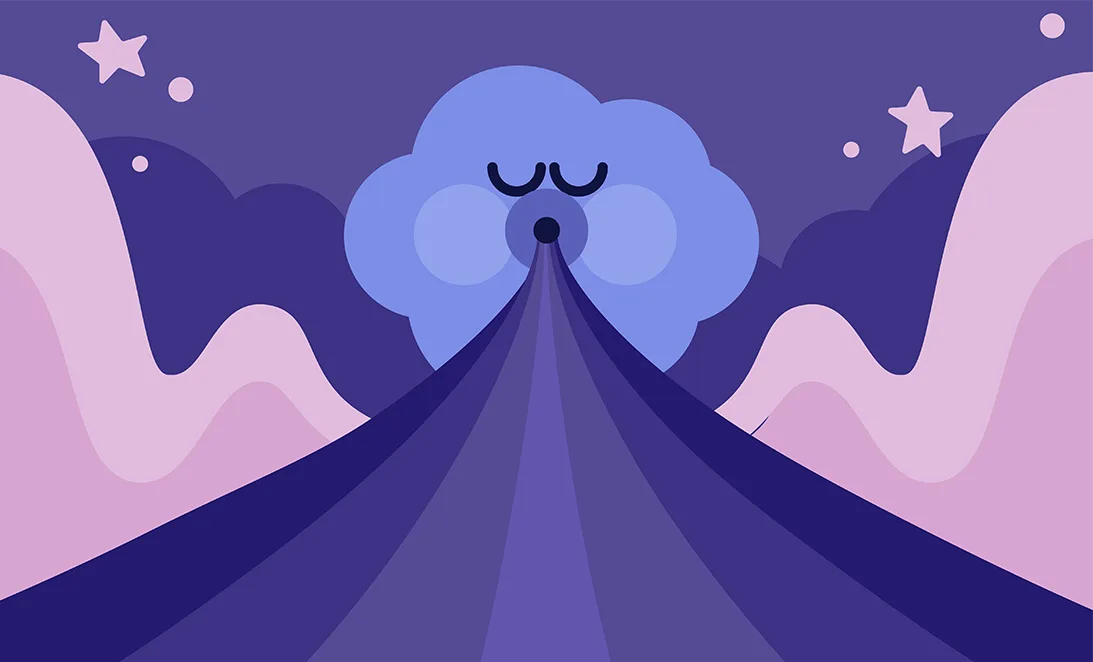
Different stages of sleep
Knowing more about what happens after we doze off can help us to understand the importance of achieving enough good quality sleep … and this is where sleep cycles come in.
Sleep stages are divided into non-rapid eye movement (non-REM) and rapid eye movement (REM) sleep. We start in shallower, non-REM sleep and gradually fall into deeper slumber before we transition into REM sleep, which is where we do most of our dreaming. We will go through this cycle three or four times during the night.
Matthew Walker, professor of psychology at the University of California, Berkeley, is one of the world’s best-known authorities on the topic, and his book, Why We Sleep, includes interesting findings on how good quality sleep can improve our “emotional compass.”
His research found that people who achieved REM sleep during a nap were better able to judge facial expressions. Also, it can help us to maintain more control, with his studies finding we are less likely to have strong reactions to emotional images after a good night’s sleep.
Keep reading: We’ve summarized 15 science-backed tips for How to sleep better including advice on creating the best environment for rest.
Sleep and stress
We’ve all been there. We put our head on the pillow for what should be the most relaxing part of our day, then our mind goes into overdrive. Our thoughts start racing with all our concerns and worries — including whether we will get enough sleep that night to be on our best form the following day.
Sleep and stress can be tricky bedfellows, and the American Psychological Association call their delicate relationship “the sleep-stress cycle.” Being stressed can get in the way of good quality rest, while a lack of sleep makes us feel more stressed.
It is not possible to avoid all stress, but we can change how we react to it. A lack of sleep can affect the prefrontal cortex, our brain’s executive center which handles reasoning, and the amygdala, which works like our brain’s thermostat and regulates our stress, controlling whether we are hot and bothered or cool and calm. Meditation has been proven to shrink the amygdala and thicken the prefrontal cortex, helping us deal better with stress and have a more positive relationship with sleep.
Keep reading: For more information on stress and how to manage it, check out Sleep and stress
Sleep hygiene
We are hearing more and more about sleep hygiene – and it doesn’t mean brushing our teeth and washing our face before bed (although they remain good ideas, too!)
Sleep hygiene is about creating the best environment for a quality night’s rest. We’ll cover some of these in more detail in the upcoming sections, but good practices include finding a relaxing and consistent evening routine, making our bedrooms a sanctuary for sleep, and creating good habits throughout our waking hours — like good diet and regular exercise — that will help us to sleep soundly at night.
And just as we make sure our teeth and face are clean each night, let’s try to keep our mind fresh and clear, too.
As Headspace co-founder Andy says: “We can have all the conditions externally, but if our mind is not relaxed and at ease, then we still won’t get a good night’s sleep. So look after the mind. Approach sleep in a way that allows you to unwind and rest in the right way.”
Keep reading: our Sleep hygiene tips feature 11 ways to set ourselves up internally and externally for the best quality Zzzs.
Sleep schedule and routine
One of the most important things we can do to promote a healthy night’s sleep is to try to go to bed and wake up at roughly the same time every day, including weekends. This helps us set our circadian rhythm, the 24-hour cycle that is part of our internal clock and controls when we sleep and wake, so our body knows when it should be sleeping each night.
A good routine throughout the day can also help, including regular exercise, not eating too late and enjoying the same wind-down ritual — like a bath, reading a book, or listening to a sleepcast, sleep music, or sleep meditation — each night.
Andy encourages us to meditate first thing each morning, even if the main goal of our meditation practice is to help us sleep at night. This way, it becomes part of our daily morning routine and sets us up for calm and clarity in the mind throughout the day, therefore improving our chances of enjoying that peacefulness needed to help us sleep well at night. And as Andy says, the benefits of a morning meditation will still “find its way into your nightly habits and into your sleep.”
Keep reading: for more on creating the best morning routine, check out How to wake up easier.

The best temperature for sleeping
While getting the condition of our mind right for sleep is important, we also need our environment to be conducive for a good night’s rest. The ideal bedroom is cool and dark, and experts agree the optimum temperature for sleep is between 60 and 67 degrees Fahrenheit.
The reason for this is linked to our circadian rhythm. Our body’s internal temperature is supposed to fall when we sleep, and if the temperature in the room is too high or too low, that could affect this desired drop and cause us to have a disrupted night.
Natural and artificial light
Our circadian rhythm reacts primarily to light and darkness, and artificial light can confuse our body clocks. We produce the hormone melatonin in the evening to induce drowsiness, and our bodies rely on light cues for that process.
So the more we can be in tune with natural light, the better: rising with the sun, getting enough natural light in the day, dimming the artificial lights in our homes after dark, and, of course ...
Phone use and sleep
… turning off our phones before bedtime! Cell phones and electronic devices are perhaps the most disruptive influence on our sleep. Many of us take our phones to bed more than we’d like to admit. And while we probably don’t need a scientific study to tell us that too much phone use, particularly just before bed, disrupts our quality of sleep, we are going to share some anyway, just in case!
Harvard research found using electronic devices in the evening makes it harder to get to sleep, and a University of California, San Francisco study showed its negative impact on sleep duration and efficiency. And specifically, the blue light emitted by phones has been found to play havoc with our body clock and melatonin production.
So try to put down the phone at least an hour before bed, and leave it out of reach when we sleep.
Keep reading: Using your phone before bed dives deeper into the issues with mixing our phone and sleep, and suggests some alternatives to scrolling between the sheets.
Best foods and drinks before bed
There are many reasons you might find yourself hungry before bed. Maybe dinner didn’t hit the spot. Or maybe food is a comfort in times of stress or anxiety. However you got here, you might remember advice you’ve heard against eating before bed and be tempted to go to sleep hungry. But if your body is telling you it wants food: Listen to it.
What’s more, research shows that consuming nutrient-rich foods at night can also be beneficial for heart health and even muscle recovery after exercise. It’s all about choosing foods that support restful sleep and taking a mindful approach to eating that late-night snack.
Keep reading: Feeling drawn to the light of the fridge at night? The best and worst foods to eat before bed might help you choose a mindful midnight snack
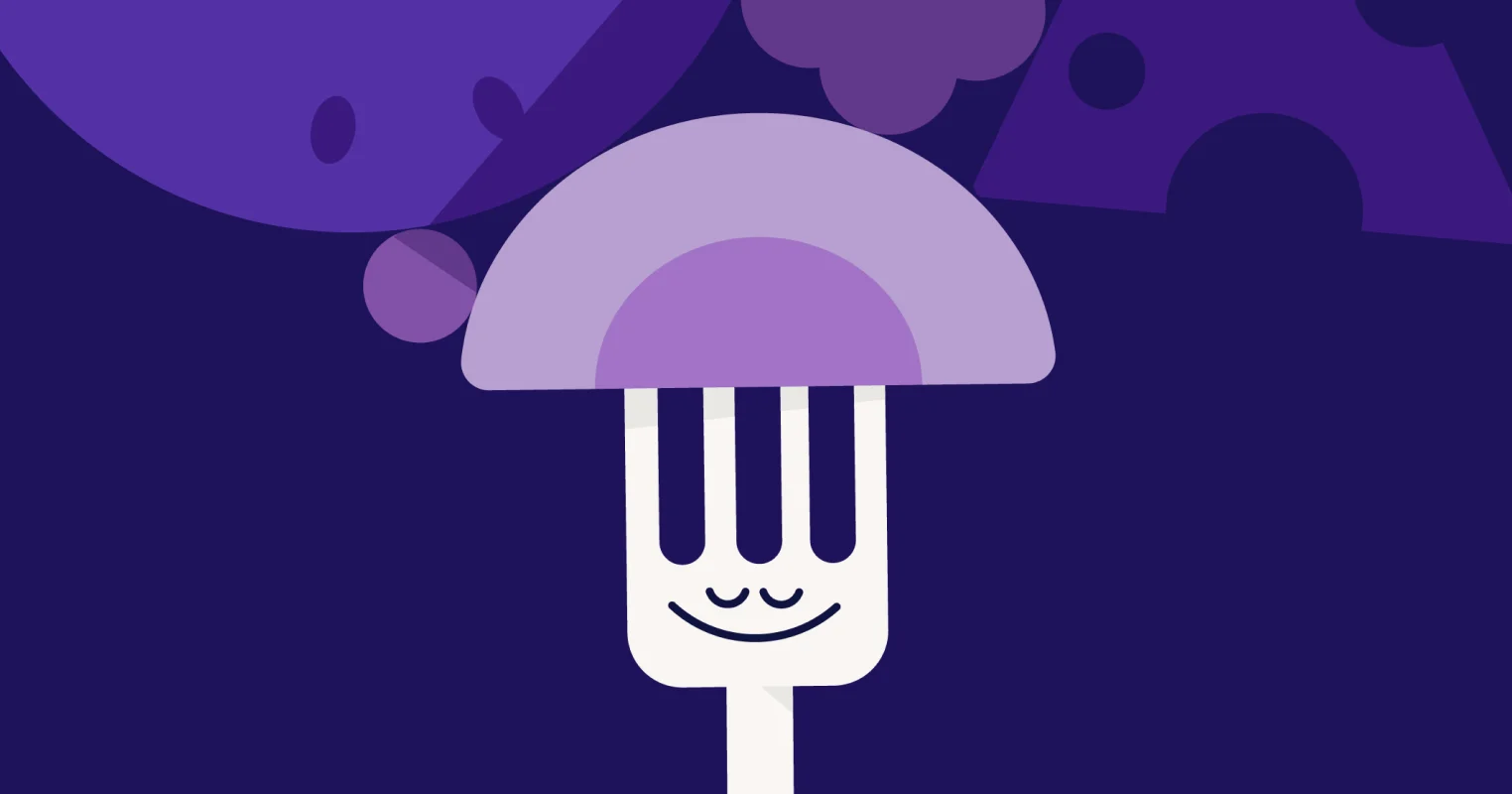
Exercise and sleep
In order to wind down peacefully at night, it is important to get enough exercise in the day. Exercise can help stabilize our mood and decompress the mind, and research has shown that exercise helps us fall asleep faster and improves sleep quality.
There remains some debate about the best time to exercise in the day, and we should find the routine that works best for us. But due to the endorphins released during physical activity that can get the mind buzzing, try not exercise within an hour or two of trying to sleep to give ourselves a chance to unwind.
And the good news is that we don’t need to train like a pro athlete to aid our sleep at bedtime. Just 30 minutes of simple, moderate aerobic exercise is enough to increase the quality of our sleep that night.
Keep reading: Stretching for beginners is a great place to start to combine mindfulness and exercise for a healthier body and mind.
Better ways to use the bedroom
In 1972, leading sleep expert Richard Bootzin, of the University of Arizona, famously said that people should avoid any activity in the bedroom apart from “sleep and sex.” And today, as we find cell phones and other electronic devices fighting for our affection in the bedroom, this advice remains as valid as ever.
It’s best to train our minds that our bedrooms are simply a place to rest. And if we can’t sleep after half hour or so, consider going to a different room to engage in a relaxing activity like reading or listening to music, then return to bed when we’re feeling sleepy. This avoids us associating our bedrooms with that frustration we experience when we are struggling to sleep.
Also, try to keep our rooms clean and tidy, as that helps keep our minds uncluttered, too.
Napping
Lots of high-achieving folk — including Salvador Dali, Albert Einstein, and Winston Churchill — are well-documented fans of a catnap. So having a doze in the day certainly doesn’t make us a slacker!
If we’re tired during the day and have the opportunity, then a nap can help us return to the challenges ahead more focused and productive. Around 20 minutes is the ideal length of power nap and can improve memory recall, alertness and mood
However, daytime naps are best when we are already in a good sleep routine at night. If we are not falling asleep easily at bedtime, it could be sensible to work on that first rather than relying on sleeping in the day to catch up on our Zzzs.
Keep reading: for more tips on how to enjoy the boost from a quick daytime snooze, try our Power napping.
Meditation for sleep
When we settle the mind, we can rest the body. Headspace offers a wealth of guided meditations — exercises that can be practiced in the day or before bed — to help us achieve better quality sleep.
Our 30-day Sleep pack is designed to be used earlier in the day, and aims to improve our relationship with sleep for long-term sustainable change.
This can be used in conjunction with specific, targeted single meditations and exercises designed to help us drift off at night, which use techniques like counting breaths, visualizations and mindful body scans.
Keep reading: check out Meditation for sleep for more on creating the best inner conditions for a restful night.

Best sounds to fall asleep to
Listening to certain sounds before bed, and even throughout the night, can encourage relaxation and also become a ritual which our mind associates with switching off.
Just as we sometimes retreat to nature in the day to find a sense of calmness and clarity, we can listen to nature sounds at night to help us wind down before bed.
And throughout the night, ambient noise can create a baseline of sound that can mask more distracting noises, like the honking of a car horn outside, that could disrupt our sleep.
The best sounds to fall asleep to are individual to each of us; some like the natural sounds of rainfall or birds, others prefer the quiet chatter of voices in a coffee shop, while some of us just want the sweet sound of silence.
Keep reading: both Ambient sounds and Nature sounds offer more on background bedroom noise.
Sleepcasts and sleep music
Once upon a time, we all loved being read bedtime stories. But why should only children enjoy the ritual of being lulled to sleep by a soothing tale?
Headspace offers unique bedtime stories, called sleepcasts, to help us drift off. Each story transports us to a dreamy environment, like a peaceful Californian desert or a tranquil lakeside lodge, and couples a narrated tour of the landscape with soothing sounds to create an immersive experience.
The stories are remixed every night, so the experience is different each time we listen. This is so we can’t memorize the narrative and use it to track the passage of time, something that is a cause of anxiety for restless sleepers.
And our sleep music offers a carefully curated soundtrack, combining live music with nature sounds, to help us fall, and stay, asleep.
Keep reading: learn more about how Sleepcasts and Sleep music can help set the tone for a healthy night’s rest.
Natural sleep aids
Some people in search of help falling asleep, or a better-quality night’s rest, turn to the help of natural sleep aids.
The hormone melatonin and the natural mineral magnesium are among the most popular supplements on the market, along with plant-based products like lavender, valerian, chamomile and passionflower.
While the FDA does regulate sleep aid supplements, it treats them like food rather than medications, so manufacturers don’t have to prove they are safe or effective before putting them on the market. So it’s worth doing your own research into the potential benefits and risks.
And it is possible the best natural sleep aid doesn’t come in the form of a plant or a pill, with meditation proven to help you sleep more soundly by encouraging the right inner conditions for a restful night.
Helping kids sleep better
We know sleep plays an essential role in the development of young minds – not to mention ensuring our little angels don’t turn into grouchy monsters.
Try approaching our kids’ sleep with a similar calmness as we are trying to treat our own. We cannot force or expect them to go to sleep on demand, but we can create the best internal and external environment for rest, including a relaxing bedtime routine, limiting screen time, and a cool, dark and comfortable bedroom.
And like adults, it’s not just what kids do in the evening that affects their sleep, so try to parent mindfully throughout the day, including ensuring our kids have had enough exercise and natural light.
Keep reading: check out Toddler bedtime routine for science-backed tips on how to wind down these often-finiky sleepers, and our Meditation for kids, with fun activities for children to teach them the basics of mindfulness.
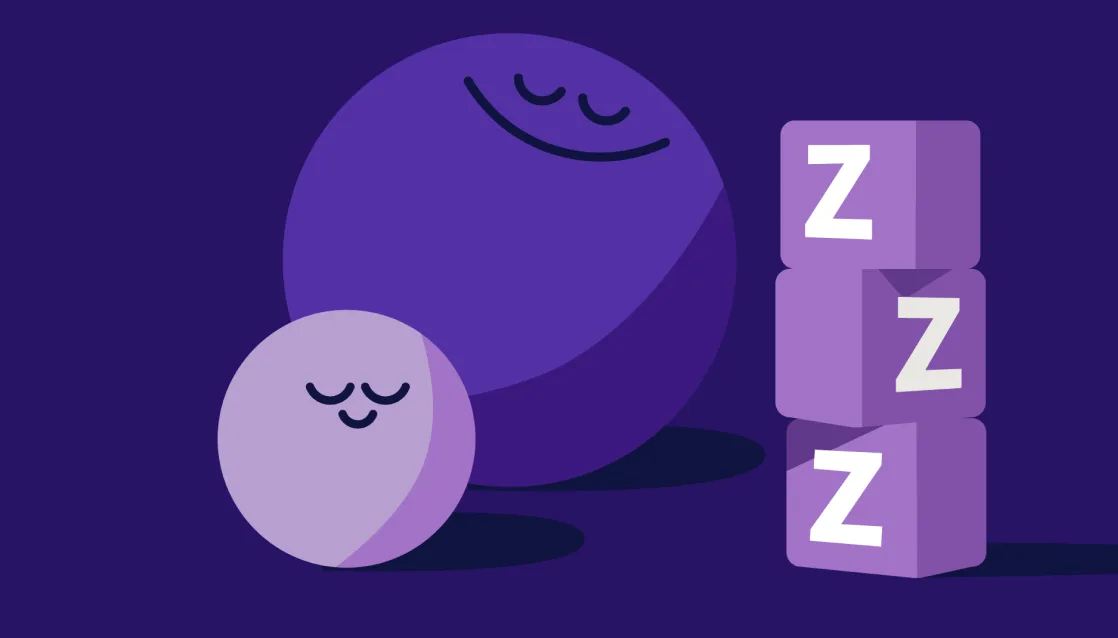
Dreaming and nightmares
Perhaps the most intriguing element of sleep is dreaming, and even experts remain split about its purpose.
Offering his theory on its role in our well-being, leading sleep expert Matthew Walker has said: “I think of dreaming as overnight therapy. It provides a nocturnal soothing balm that takes the short edges off of our emotional experiences, so we feel better the next day.”
We are more likely to experience fear than any other emotion in our dreams. And for some, nightmares can become a serious issue that can prevent us from getting our much-needed sleep. But research published in the Scandinavian Journal of Psychology found that those who were more mindful in their daily lives were less likely to experience negative emotions in their dreams.
Meditation can help us to view our thoughts — and our dreams — from a more comfortable emotional distance, and not add the fuel of further commentary.
Keep reading: How to stop nightmares looks at how we can reframe our thoughts to stop stress and anxiety overwhelming our mind in the day and at night.
How to fall back to sleep
Whatever wakes us up at night, whether nightmares, stress, or our partner stealing the covers again, we need to be able to get back to sleep to avoid missing too much shut-eye.
Headspace offers various resources to help, including specific Nighttime SOS exercises to calm our minds when we wake up in the night.
Attempt to set ourselves free from the storylines we create around worrying about whether we fall back to sleep, and simply try to be kinder to ourselves, finding a place of calm where we can drift off with ease.
Keep reading: How to fall back asleep features 8 tips of how to doze off again after we wake up at night.
The effects of sleep deprivation
Even with the best intentions and sleep hygiene, most of us have experienced sleep deprivation at some stage in our lives. Stress, pain, a newborn and jetlag are some of the reasons that we can suffer at night, and the result is we cannot function to the best of our ability in the day.
Sleep deprivation can have a serious impact on our mental and physical health, including our mood, memory, immune system, ability to concentrate, and sex drive. And the knock-on effect can be dangerous, with fatigue, for example, causing 100,000 car crashes in the US each year.
Meditation can help by lowering the heart rate, encouraging slower breathing, and teaching us to trigger our "relaxation response” when we need it most. And sometimes we need a new perspective to prevent the sleep-stress cycle from spiraling.
Headspace co-founder Andy says, “We might be in bed with our eyes closed, but not sleeping. That can still be restful if we know what to do with the mind.”
Embracing the morning
Some of us are morning people and some of us are night owls. There’s no right or wrong, it can just be the way our circadian rhythm is wired.
But sometimes adapting to a new job, a new challenge, or new partner can mean we want, or need, to embrace the morning — even if it doesn’t come naturally to us. And one advantage of being an early riser is we expose ourselves to natural light in the morning, which can benefit our health.
A shift in mindset, consistent bedtime and wake up, and invigorating morning routine can all help us bounce out of bed and enjoy the pleasures of the morning.
Keep reading: How can I become a morning person includes 6 tips to help us become an early riser.
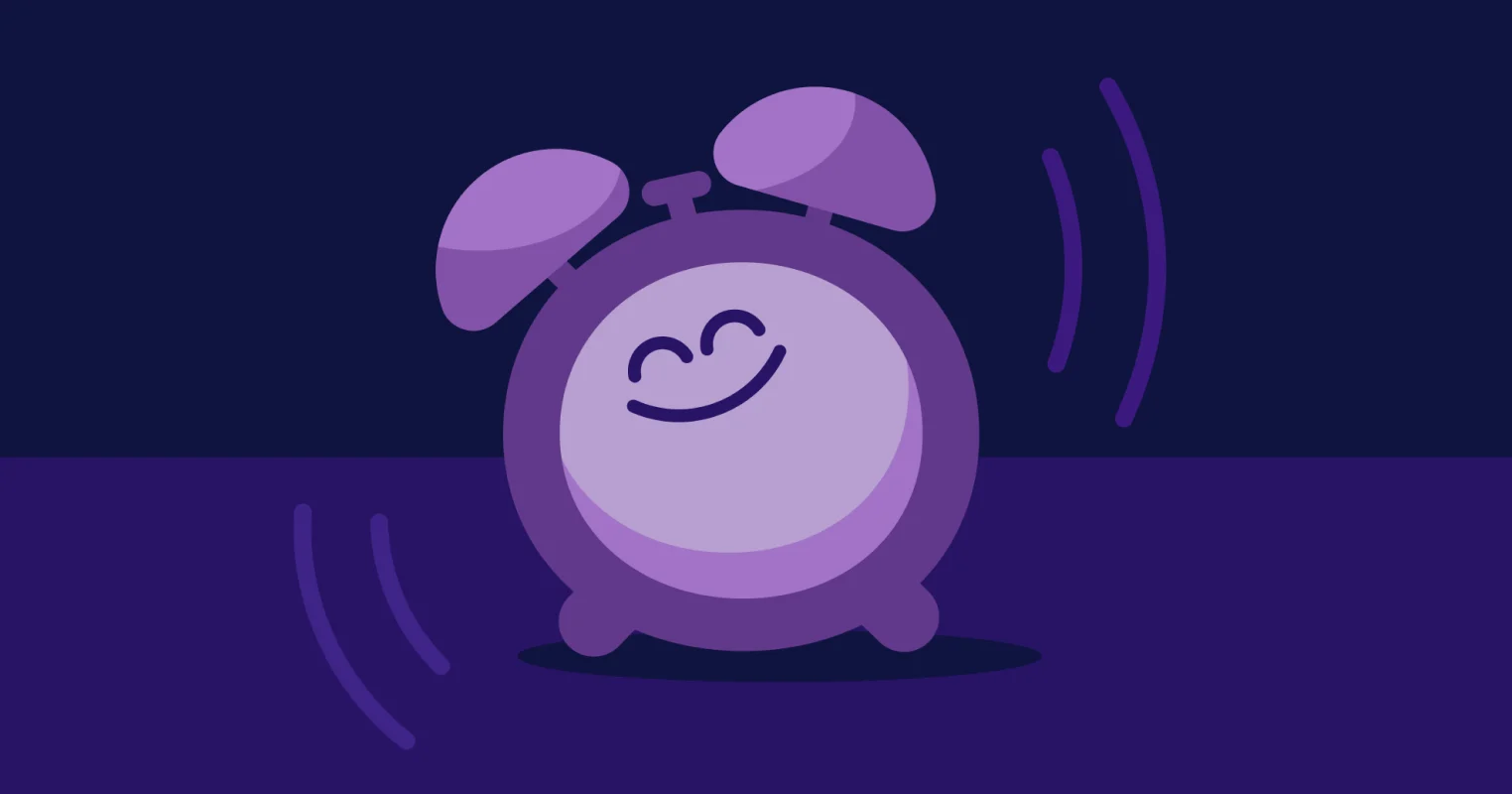
Morning meditation
By starting our daily routine with a morning meditation, we set up our minds for the unpredictable day ahead, and it can benefit us all the way until bedtime.
Meditating in the morning makes it part of our daily routine, like brushing our teeth, and helps us start our day fully awake and fully aware.
Headspace co-founder Andy says, “I think doing it first thing in the morning, one, ensures that you do it, two, you start the day fresh, and three, you lay down a foundation of mindfulness that means that you are more likely to make mindful decisions throughout the day.”
Keep reading: Check out Morning meditation for more tips on finding the best routine to start our day.
Headspace for sleep
The best way to improve our tricky relationship with sleep is to be kinder to ourselves. By making time for meditation, we are embracing a natural sleep aid that can help us rest the mind and body. Approach it with a soft, gentle focus and remember there is no right and wrong.
Headspace offers a 30-day Sleep pack to improve our relationship with sleep over the long-term, and individual exercises to help us sleep at night. And engaging in mindfulness around the clock helps us to approach all challenges in life with a calm confidence — from waking up in the morning to putting our head on the pillow at bedtime.
Andy says: “Meditation allows us to disengage from all the thoughts and emotions that can keep us awake at night, and it teaches us to unwind in a way that invites a restful night’s sleep.”
Keep reading: Sleep by Headspace offers resources to help us create the perfect conditions for healthy, quality sleep.


Sleep made simple
- Find your perfect bedtime routine with hours of relaxing music, sounds, and stories to choose from
- Get more restful sleep with our Sleep Health course: exercises developed with leading sleep scientists
- Feel your best from morning to bedtime with access to hundreds of stress-relieving meditations
Annual - billed at $69.99 USD/yr
14 days free
$5.83 USD/month
Monthly
7 days free
$12.99 USD/month

- © 2024 Headspace Inc.
- Terms & conditions
- Privacy policy
- Consumer Health Data
- Your privacy choices
- CA Privacy Notice

